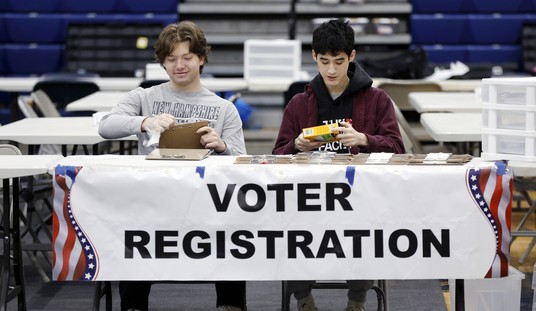A retired U.S. Army Lt. Colonel, his wife, and his adopted daughter may be forced to relocate to South Korea in order to keep their family together — all because of an adoption deadline missed when Lt. Col. Patrick Schreiber was deployed serving our country overseas.
Because the Schreibers missed the adoption deadline, the country Schreiber served has rejected his daughter’s citizenship application, which means she may be forced to return to her native country. If that happens, her parents intend to leave with her, so their family isn’t separated.
The situation tragically has Schreiber, who served six tours during his 27 years in the military, full of regret; he told the Kansas City Star in March, “I should have put my family ahead of the Army.”
Lt. Col. Patrick Schreiber, a retired Kansas Army officer, has lost his fight in federal court over his adopted daughter’s citizenship status, meaning she may have to return to her native South Korea. https://t.co/lGijZRLmHU
— Stars and Stripes (@starsandstripes) September 29, 2018
Lt. Col. Patrick Schreiber and his wife Soo Jin legally brought their then-15-year-old niece Hyebin to the United States in 2012 with a student visa. Schreiber was then deployed to Afghanistan during 2013 and 2014, so the Schreibers didn’t legally adopt Hyebin until his return home. At that point, Hyebin was 17 years old.
The Schreibers had earlier consulted with an adoption lawyer, who told them they had until Hyebin’s 18th birthday to complete the adoption, so they thought they had correctly followed procedures and completed the process in time.
This belief was bolstered because the state government and federal government accepted the adoption as legitimate: Kansas issued a birth certificate for Hyebin with Patrick and Soo Jin listed as her parents, and the Department of Defense recognized Hyebin as Schreiber’s dependent.
Unfortunately, the Schreibers did not speak with an immigration lawyer and therefore did not learn that the Immigration and Nationality Act (I.N.A.) requires a foreign-born child be legally adopted before the age of 16 years old.
As a result, Hyebin’s visa and U.S. citizenship applications were rejected.
Schreiber filed a lawsuit, but a judge ruled against the family two days ago, on September 28.
Hyebin currently attends the University of Kansas, where she studies chemical engineering, but her student visa expires next year. Hyebin may then be forced to return to her native South Korea.
If that happens, Schreiber says, he and Soo Jin will go with Hyebin.
“Yes, she loves the United States. But our biggest concern is staying together as a family,” Schreiber told the Kansas City Star.
The Schreibers’ story gained significant attention after the Stars and Stripes tweeted about it, causing many on Twitter to criticize the circumstances and to suggest alternative solutions.
We have all kinds of wavers for people who run into legal paperwork problems because they're deployed overseas serving their country. This seems to me to be, at least on the face of it, one of those hardship cases.
— Patrick Chovanec (@prchovanec) September 30, 2018
“The law clearly says that if you’re 16 or older when adopted, you cannot derive citizenship from your parents,” United States Citizenship and Immigration Services (USCIS) spokeswoman Sharon Rummery told the Kansas City Star. “We don’t make the law. That’s the job of Congress.”
The 16-year-old age restriction is intended to prevent older teenagers from defrauding the citizenship process. However, the Schreibers have provided evidence that Hyebin was legally adopted, several government entities recognized the adoption, and Patrick Schreiber was serving his country during the required adoption deadline.
If there were ever a time to issue a hardship waiver, this is it.
The views expressed here are those of the author and do not represent those of any other individual or entity. Follow Sarah on Twitter: @sarahmquinlan.













Join the conversation as a VIP Member